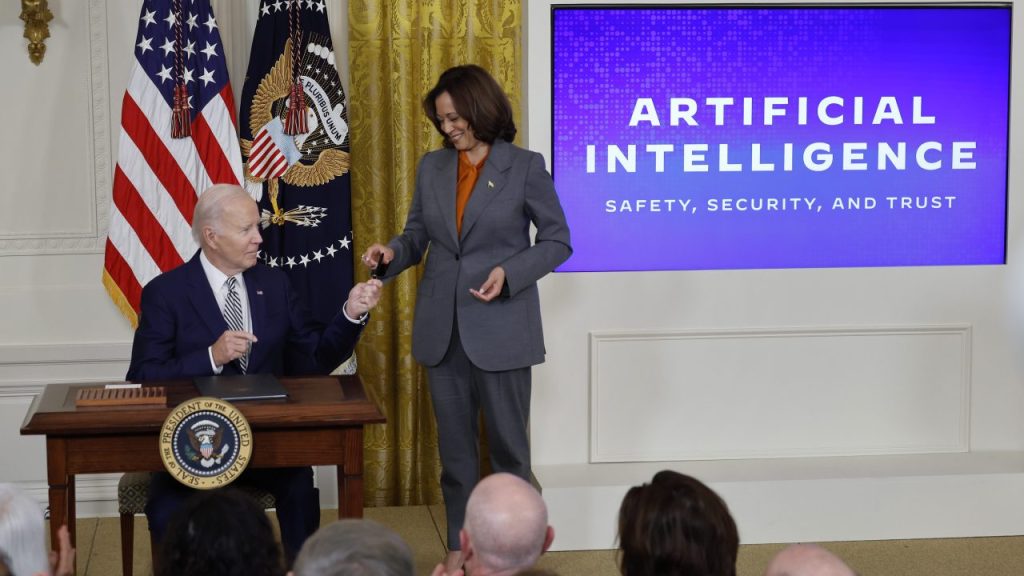Recently, President Biden has signed an executive order concerning artificial intelligence (AI) with the objective of regulating AI applications in the workplace and mitigating the impact of AI displacing human workers.
The integration of AI in professional and collegiate sports will play a crucial role in how businesses adopt AI technologies and how governmental regulations are implemented in those sectors.
While athletes, coaches, and decision-makers are not at immediate risk of being replaced by computers or AI programs, other roles within the sports industry face a higher likelihood of near-term displacement.
Positions such as analytics professionals, researchers, data entry personnel, customer support specialists, and content creators are susceptible to being automated by AI systems, which excel in tasks involving data analysis and empirical work. As AI technology advances, sports organizations are increasingly drawn to the cost savings and operational efficiencies it offers by automating tasks traditionally performed by humans.
In the realm of sports officiating, advancements like the implementation of “robot umpires” in Triple-A baseball games demonstrate the ongoing integration of AI technologies. While Major League Baseball (MLB) has indicated that fully automated game officiating may not reach the MLB level until 2024, the future implications for the rest of the decade remain uncertain.
Contrary to the notion that AI solely leads to job displacement, there are instances where AI is leveraged to enhance user experiences without replacing human workers. For instance, MSG Networks utilizes AI to enhance multimedia features during New York Knicks and NY Rangers games, focusing on improving fan engagement rather than replacing human staff.
However, AI has been linked to job losses in the United States. Reports from Challenger, Gray & Christmas, a Chicago-based outplacement firm, highlighted AI as the primary driver behind 3,900 job losses in May. Additionally, a Goldman Sachs report emphasized the potential impact of AI on the workforce, projecting a significant shift with up to 300 million full-time jobs being altered or lost due to AI advancements.
President Biden emphasizes the importance of responsible AI deployment in the workplace to safeguard workers’ rights, maintain job quality, ensure employee security, promote market competition, mitigate health and safety risks, and prevent disruptive labor force changes. Biden has tasked the Department of Labor with developing strategies to address job displacement risks and opportunities associated with AI, focusing on workforce skills and worker assessments.
The executive order on AI reflects a forward-looking approach, leaving the specifics to be determined by relevant governmental agencies in the future. Clarity is essential in defining prohibited practices, outlining suitable penalties, and establishing remedies. The potential impact of Biden’s re-election or the outcome of the 2024 election on the AI executive order is significant, as a new administration could potentially revise or revoke the order.
As with any executive order, legal challenges may arise if it is deemed to contravene existing laws or exceed authorized jurisdiction. The oversight and development of AI will significantly influence the sports industry, impacting various sectors such as leagues, teams, educational institutions, and businesses involved in sports-related technologies, apparel, equipment, gaming, betting, legal aspects, and media.
While some workers in the sports industry may benefit from protective measures against AI-induced job displacement, others may face challenges in adapting to the evolving landscape. The long-term implications of AI on careers in the sports sector remain uncertain, necessitating proactive measures to address potential workforce disruptions.






